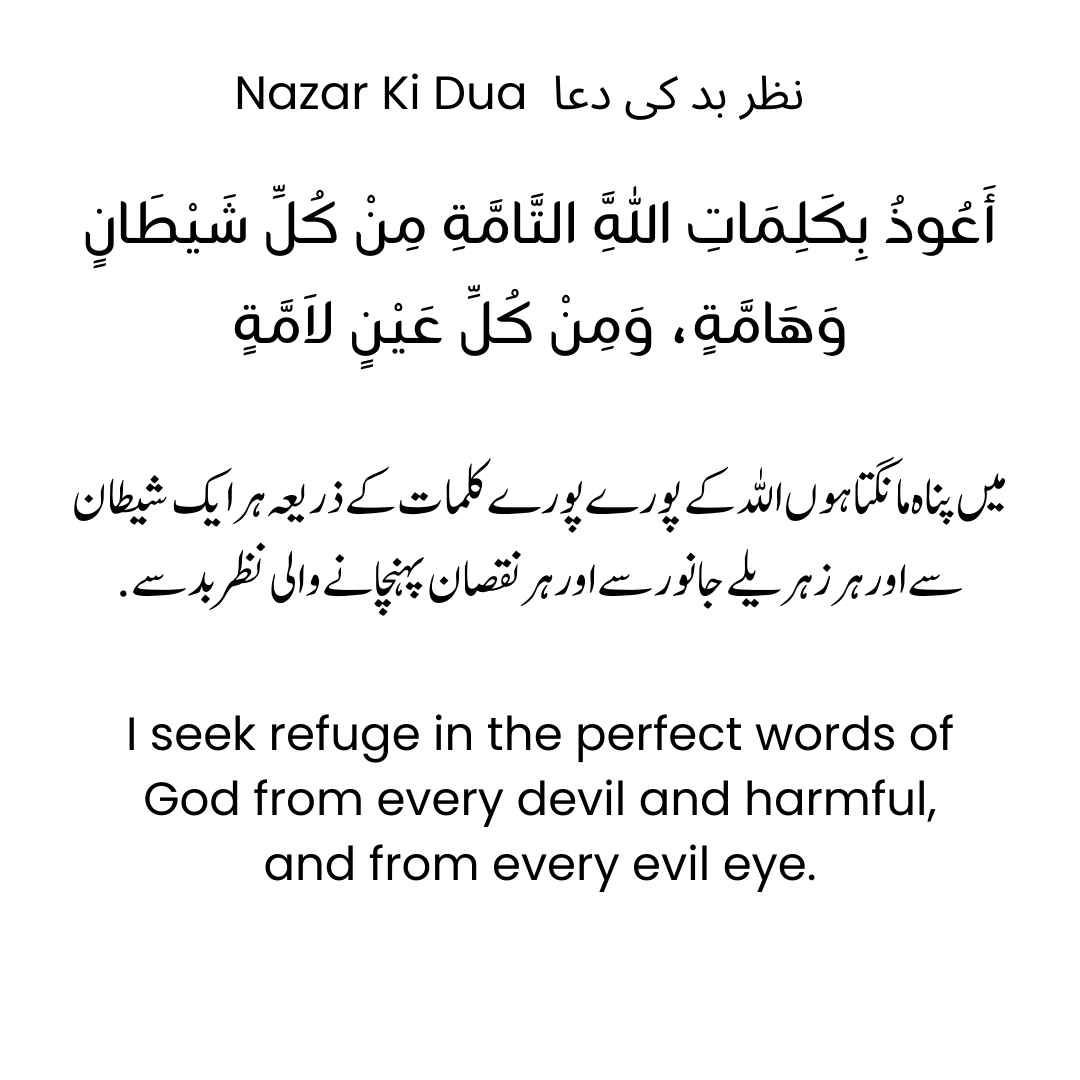Blog
Powerful Prayer for Protection

Introduction
In Islam, seeking Allah’s protection through duas (supplications) is an essential act of faith. Whether facing evil eye (nazar), black magic (sihr), or daily challenges, reciting Quranic prayers for protection brings peace, safety, and divine security.
The Prophet Muhammad (ﷺ) taught us many protective duas to safeguard ourselves, our families, and our homes. Below are some of the most powerful Islamic prayers for protection from harm, enemies, and negative energy.
1. Best Quranic Duas for Protection
1.1 Ayat-ul-Kursi (The Throne Verse) – Surah Al-Baqarah (2:255)
One of the strongest Quranic verses for protection, Ayat-ul-Kursi should be recited daily. It is a shield against evil, black magic, and Shaytan (Satan).
Allah says:
“Whoever recites Ayat-ul-Kursi at night, Allah will send an angel to protect him till the morning.” (Tirmidhi 2882)
Recite this verse daily, especially before sleeping and after every prayer.
1.2 Surah Al-Falaq & Surah An-Nas (Last Two Surahs for Protection)
The Prophet Muhammad (ﷺ) advised reciting Surah Al-Falaq and Surah An-Nas three times in the morning and evening for complete protection.
Translation of Surah Al-Falaq (113:1-5):
“Say: I seek refuge in the Lord of the daybreak, from the evil of what He has created, and from the evil of the night when it grows dark, and from the evil of sorcerers, and from the evil of the envious when he envies.”
Recite these surahs daily for protection from black magic, jinn, and evil eye.
2. Islamic Duas for Protection from Harm & Evil
2.1 Dua for Protection from Evil Eye (Nazar)
The evil eye (nazar) is real in Islam, and the Prophet (ﷺ) recommended seeking Allah’s protection from it.
Dua to protect yourself from the evil eye:
“A’udhu bikalimatillahi at-tammati min sharri ma khalaq.”
(Translation: “I seek refuge in the perfect words of Allah from the evil of what He has created.”) (Sahih Muslim 2708)
2.2 Dua for Protection from Black Magic (Sihr) & Jinn
To safeguard yourself from black magic, sihr, and jinn, the Prophet Muhammad (ﷺ) advised reciting:
Dua for protection from sihr:
“Bismillahi alladhi la yadurru ma‘a ismihi shay’un fi al-ardi wa la fi as-sama’i wa huwa as-sami‘u al-‘alim.”
(Translation: “In the name of Allah, with whose name nothing on earth or in the heavens can cause harm, and He is the All-Hearing, the All-Knowing.”) (Abu Dawood 5088)
Recite this three times in the morning and evening.
3. Daily Sunnah Practices for Protection
To remain under Allah’s divine shield, follow these Islamic practices for protection:
Recite Ayat-ul-Kursi before sleeping – It ensures angelic protection throughout the night.
Say “Bismillah” before entering your home – It prevents jinn from entering.
Perform Ruqyah (spiritual healing) – Recite Surah Al-Fatiha, Ayat-ul-Kursi, and last three surahs for self-protection.
Give Sadaqah (charity) – The Prophet (ﷺ) said that charity repels calamity (Tirmidhi 664).
Conclusion
The best Islamic prayers for protection come from the Quran and Sunnah. By reciting Ayat-ul-Kursi, Surah Al-Falaq, Surah An-Nas, and powerful duas, you can safeguard yourself from evil eye, black magic, and harm.
Make these duas part of your daily routine and trust in Allah’s ultimate protection.
Blog
Nazar Ki Dua

Introduction: Understanding Nazar (Evil Eye) in Islam
In Islamic belief, nazar (نظر) or the evil eye is a real and powerful phenomenon. It refers to harm caused by someone’s envious gaze, often unintentionally. The Prophet Muhammad (ﷺ) confirmed the reality of nazar, emphasizing the need for protection through prayers and remembrance of Allah.
This article explains what nazar is, its causes, symptoms, and Islamic methods to remove it, including authentic nazar ki dua with English and Urdu translations.
What is Nazar (نظر) in Islam?
Nazar is believed to bring misfortune, illness, or bad luck due to someone’s jealousy or admiration. It can affect health, wealth, relationships, and even one’s general well-being. Islam teaches that nazar is real but also provides remedies for protection.
Authentic Hadith about Nazar:
The Prophet Muhammad (ﷺ) said:
“The evil eye is real, and if anything were to overtake the divine decree, it would be the evil eye.”
(Reference: Sahih Muslim 2188)
Causes of Nazar (نظر لگنا)
- Extreme Admiration: Praising something excessively without saying “MashaAllah.”
- Jealousy: Envious looks or thoughts from others.
- Self-pride: Boasting or flaunting blessings.
- Hidden Hatred: Ill feelings masked behind fake appreciation.
Common Symptoms of Nazar
The signs of someone affected by nazar can vary but often include:
- Sudden illnesses without medical explanation
- Headaches and body pains
- Loss of appetite or energy
- Continuous bad luck or failures
- Feeling restless or anxious
- Physical ailments like fever without cause
Islamic scholars recommend seeking both medical treatment and spiritual solutions, including nazar ki dua, for protection.
Islamic Methods to Remove Nazar
Islam provides authentic ways to deal with nazar:
1. Reciting Qur’anic Verses and Supplications
The best method to remove or protect against nazar is by reading specific duas and Quranic verses regularly.
2. Ruqyah (Spiritual Healing)
Ruqyah involves reciting specific verses and duas prescribed by the Prophet Muhammad (ﷺ) to seek protection from evil.
3. Regular Remembrance of Allah
Making dhikr (remembrance) and seeking Allah’s help daily is the most powerful shield against any harm, including nazar.
Powerful Nazar Ki Dua (Authentic Duas)
Here are the authentic duas for nazar protection that Prophet Muhammad (ﷺ) taught:
1. Nazar Ki Dua in Arabic:
أَعُوذُ بِكَلِمَاتِ اللهِ التَّامَّةِ مِنْ كُلِّ شَيْطَانٍ وَهَامَّةٍ وَمِنْ كُلِّ عَيْنٍ لَامَّةٍ
2. Nazar Ki Dua in English:
“I seek refuge in the perfect words of Allah from every devil and every poisonous reptile, and from every evil eye.”
3. Nazar Ki Dua Urdu Translation:
“میں اللہ کے مکمل کلمات کے ذریعہ ہر شیطان، ہر زہریلے جانور، اور ہر نقصان دہ نظر سے پناہ مانگتا ہوں۔”
4. Another Nazar Protection Verse:
You can also recite Surah Al-Falaq (113) and Surah An-Naas (114) regularly for protection.
Surah Al-Falaq:
“Say, ‘I seek refuge in the Lord of daybreak…'”
(Full recitation is recommended daily.)
Important Sunnah Practices to Prevent Nazar
- Say MashaAllah (ماشاء اللہ) whenever admiring someone or something.
- Recite Ayat-ul-Kursi (Surah Al-Baqarah 2:255) daily.
- Recite the morning and evening adhkar (daily prayers).
Final Words: Stay Protected with Faith
Nazar is a reality in Islam, but Allah has provided powerful tools and duas to seek protection. Reciting the authentic nazar ki dua, doing ruqyah, and staying connected to Allah are the best ways to stay safe from harm.
Make it a habit to read these prayers daily for the protection of yourself and your loved ones. Trust in Allah’s mercy and stay consistent in your duas.

Blog
Find the Right Quran Teacher: A Complete Guide for Beginners

Modern technology has created the easiest pathway to find Islamic knowledge. Seeking an excellent Quran teacher is a crucial requirement for both students who want to deepen their connection to the Quran and those starting their Quranic learning experience. Your teacher must understand your learning requirements while still respecting your pace through structured educational methods. Online and offline Quran learning options can create an overwhelming situation for beginners who must choose their instructor.
Why Choosing the Right Quran Teacher Matters
Allah revealed the Quran as His divine message, which goes beyond being just a book. A complete comprehension of the Quran depends on proper pronunciation, as well as a correct interpretation and understanding of its message. A qualified teacher is essential for learning the Quran. The ideal Quran teaching experience combines help with Tajweed and memorization with Islamic value education and contextual understanding of each verse.
Eccentricity often occurs when novices begin studying the Quran. Thus stands the inception point.
Novice Quran learning presents students with both inspiration and overwhelming feelings. Beginners need to find a Quran teacher who specializes in educating new students. A knowledgeable teacher who works with patients will simplify educational material by starting with Arabic letter study before moving forward to Quran reading proficiency and comprehension.
A beginner needs to follow a systematically organized learning plan to succeed. A Quran instructor should have an entry-level program with assessment systems and feedback protocols. Faith seekers of any age can use numerous online academies to access individualized, one-on-one sessions.
Al Quran Academy Learning Quran: A Reliable Option
Al Quran Academy Learning Quran serves as one of the most respected solutions for online Quran education. The institution specializes in Quranic education for multiple age groups, thanks to its flexible schedule and a qualified teaching staff. The organization provides comprehensive Quranic education through its well-designed learning programs, which encompass Tajweed training and memory learning, while also delivering an understanding of Quranic meanings.
The Al Quran Academy’s learning Quran platform dedicates its mission to offering Quranic education to all populations, particularly to people living in non-Muslim countries who struggle to access local resources for their learning needs. Students can find Quranic education through a digital platform that allows them to take online classes with professional tutors without needing to leave home.
Qualities of the Best Quran Tutors
The search for a Quran teacher requires specific instructor characteristics to become successful. Professional Quran tutors possess both deep knowledge and a compassionate nature while demonstrating understanding of different student requirements. Several important factors should be considered when selecting a Quran tutoring professional.
- A qualified Quran teacher must display both proper certification and teaching experience across different learning levels.
- You should work with an Arabic language teacher who speaks your native language when your Arabic proficiency level is basic.
- Dynamic and straightforward instruction methods help both beginners and children maintain attention throughout their learning sessions.
- Timings should be flexible because students often demand this, especially when their daily schedules conflict with their learning habits or when they reside in different time zones from their tutor.
- Try-out sessions are available on numerous platforms that offer price-friendly or free classes to help students understand teaching methods.
Excellent Quran tutors combine awarding feedback with practical learning objectives to motivate students to engage in out-of-class practice activities.
Tips to Make the Most Out of Your Quran Learning Journey
- Define your academic objectives, whether you want to learn memorization, improve your Tajweed, or understand the entire Quran text. Determining your specific goals will lead you to the best teacher and the most effective curriculum.
- Regular practice serves as the foundation for your journey to learn the Quran since it is considered a spiritual practice. Consistency proves to be more beneficial than studying at high intensity levels.
- New learners should remain patient, as learning the Quran can involve periods of difficulty. That’s perfectly normal—don’t give up.
- Technology-based tools offer advantages to learners through websites and applications that help students with revision and learning the ajweed rules.
Conclusion
Look for a Quran teacher by evaluating what goals you want to achieve, together with your available schedules and learning method preferences. Al Quran Academy and Learning Quran provide the perfect educational venues for learners who need flexible professional training in a structured learning environment. The decision to start Quranic education reflects both nobility and reward, as it allows beginners to learn through basic Quran lessons, while advanced learners can find superior Quran tutors. From the beginning of your course through to its completion may light illumination your educational path with perfect understanding.
Blog
Masjid

A Masjid commonly known in English as a mosque is a place of worship for Muslims. Derived from the Arabic root word sajada (سَجَدَ), which means “to prostrate,” the term Masjid directly translates to “a place of prostration.” It holds spiritual, communal, and cultural significance in Islam.
Historical Background of Masjids
The first Masjid in Islamic history is the Masjid Quba in Medina, built by the Prophet Muhammad ﷺ upon his arrival during the Hijrah (migration from Makkah). Another notable early mosque is Masjid al-Nabawi, also in Medina, which became the blueprint for mosques around the world.
Key Historical Masjids:
- Masjid al-Haram (Mecca): The holiest site in Islam, home to the Kaaba.
- Masjid al-Aqsa (Jerusalem): The first Qiblah (direction of prayer) and third holiest site in Islam.
- Masjid Qiblatain (Medina): Known for the change of Qiblah during prayer from Jerusalem to Makkah.
Architectural Features of a Masjid
Masjid architecture varies by region but usually includes:
- Mihrab: A niche in the wall indicating the Qiblah (direction of prayer).
- Minaret: A tower from which the call to prayer (Adhan) is announced.
- Dome: Often found atop mosques, symbolizing the heavens.
- Prayer Hall: An open space for congregational prayers.
- Ablution Area: Space for performing Wudu (ritual washing before prayer).
Functions of a Masjid in Muslim Society
While primarily used for Salah (prayer), the Masjid serves multiple roles:
- Spiritual Center: Hosting five daily prayers, Friday sermons (Jumu’ah), Ramadan Taraweeh, and Eid prayers.
- Educational Hub: Offering Quran classes, Islamic studies, and lectures.
- Social Support: Providing community assistance, marriage services, and charity (Zakat distribution).
- Cultural Space: Celebrating Islamic events and festivals.
Etiquettes of Visiting a Masjid
When visiting a Masjid, Muslims follow proper etiquettes:
- Dress modestly.
- Perform Wudu before entering.
- Remove shoes before entering the prayer area.
- Maintain silence and respect during prayers.
- Avoid crossing in front of someone praying.
Importance of Masjids in Islam
The Prophet Muhammad ﷺ said:
“Whoever builds a Masjid for Allah, Allah will build for him a house like it in Paradise.” (Sahih al-Bukhari and Muslim)
This Hadith underlines the spiritual reward and importance of contributing to the building and maintenance of Masjids.
Modern-Day Masjids Around the World
From the grandeur of Sheikh Zayed Grand Mosque in the UAE to the historic Blue Mosque in Turkey, Masjids today reflect the beauty and diversity of Islamic architecture and culture.
Famous Masjids Globally:
- Sultan Ahmed Mosque (Blue Mosque) – Istanbul, Turkey
- Faisal Masjid – Islamabad, Pakistan
- Hassan II Mosque – Casablanca, Morocco
- Putra Mosque – Putrajaya, Malaysia
Masjids and Technology
Today, many Masjids have embraced digital transformation with:
- Live streaming of Jumu’ah and Taraweeh prayers
- Mobile apps for prayer times and announcements
- Online fundraising and donations
- Virtual Islamic classes and sermons
Building a Masjid: A Sadaqah Jariyah
One of the most rewarding charitable acts in Islam is contributing to the construction or upkeep of a Masjid. This Sadaqah Jariyah (continuous charity) benefits both the giver and the community for generations.
Final Thoughts
The Masjid is far more than just a building—it is the beating heart of Islamic life, offering spiritual guidance, communal support, and a place of peace for millions around the globe. As Islam continues to thrive in every corner of the world, Masjids stand tall as symbols of unity, worship, and divine connection.
-

 Blog6 months ago
Blog6 months agoNazar Ki Dua
-

 Blog6 months ago
Blog6 months agoSurah Muzammil
-

 Blog6 months ago
Blog6 months agoNazar Ki Dua In English Text
-

 Blog5 months ago
Blog5 months agoSurah Yaseen Read Online
-

 Blog4 months ago
Blog4 months agoEvil Eye Protection, Symptoms, Remedies & Removal?
-

 Blog6 months ago
Blog6 months agoDarood Tanjeena
-

 Blog4 months ago
Blog4 months agoWhat is the purpose of life?
-

 Blog4 months ago
Blog4 months agoHaunted House Cleaning with Paranormal Activity


